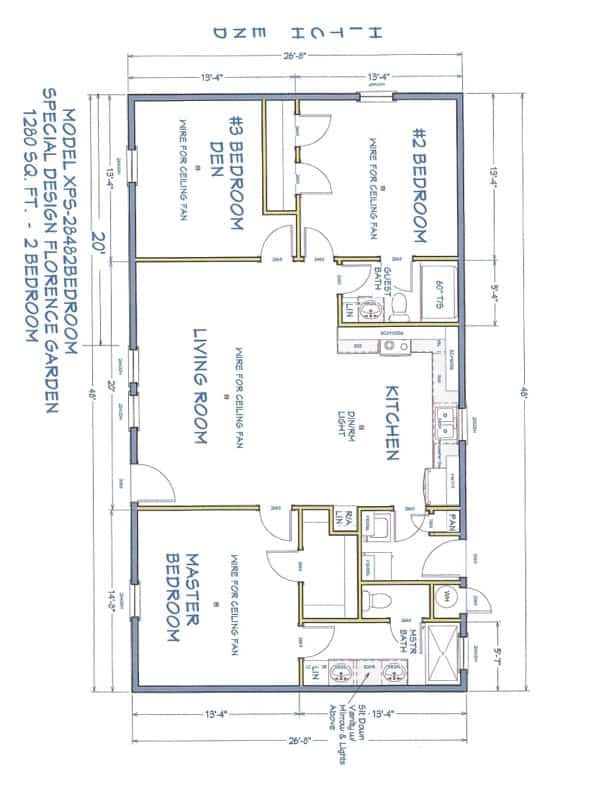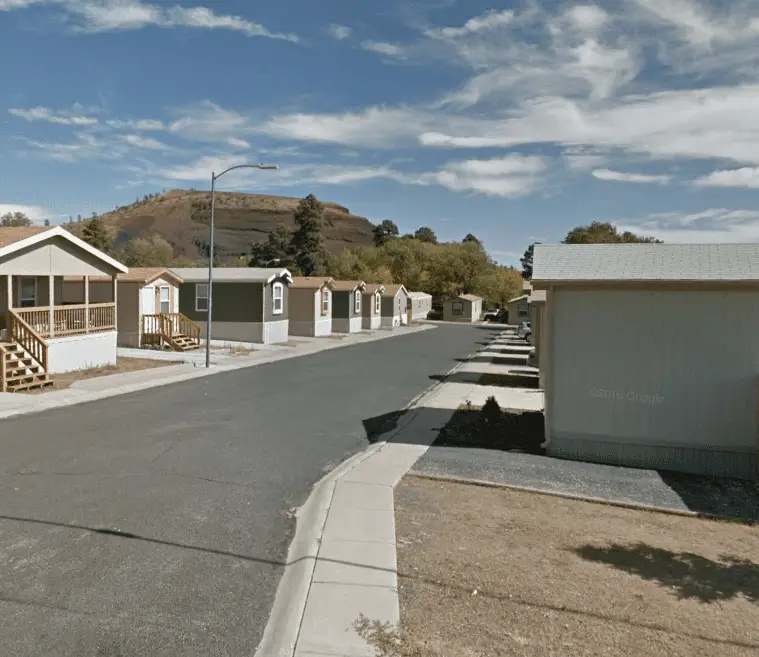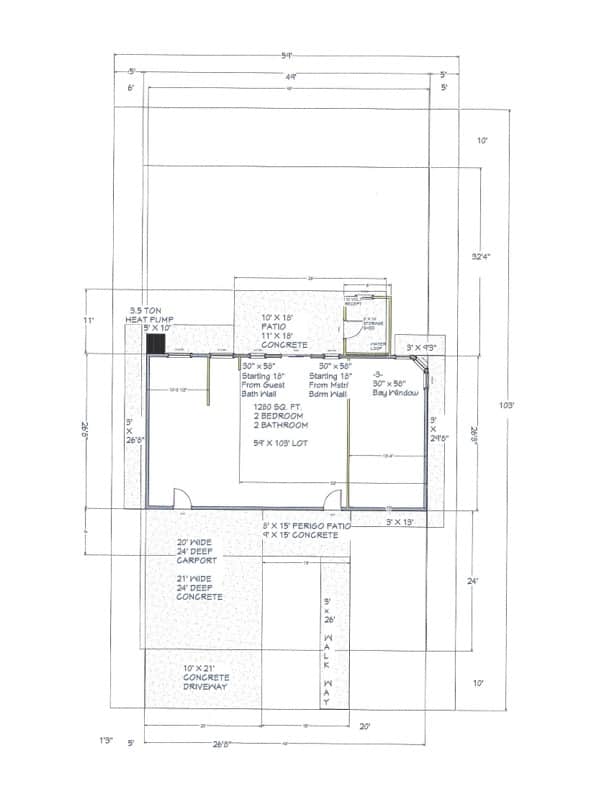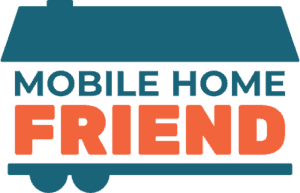Should you place your new manufactured home in a park, or on a lot that you own? When buying a new manufactured home, choosing where you will put it is one of your first decisions to be made.
Table of Contents
The Short Answer
- What is your purpose for the finished home?
- What size manufactured home do you want?
- Are you looking for an age restricted community?
- Do you want to own your own lot?
- How do you find a suitable park community?
- How do you find a fee-simple lot (your own land) to buy?
- What are the lot restrictions and setbacks?
- What are the financial considerations?
- How do you make an offer on a lot?
- Closing on your lot Purchase
All of these questions need to be answered and action taken in this first step toward buying your new manufactured home. We’ll take a look at each in-depth.
What Is Your Purpose For The Finished Home?
What will you do with the finished home?
- Live in it yourself?
- Rent it out as an investment property?
- Sell it for profit?
Your intended purpose for the home will guide every other step that you take in the process, and rightly so. If you’re planning on living in the home yourself, you will most likely be doing things differently than you would otherwise. You might choose to spend more money for a nicer area or park community. If buying a piece of land, you might want to choose a better area or a larger lot that will suit your needs for space.
If you’re planning on making the purchase for rental investment purposes, cost considerations play a strategic part in the return you get on your investment.
What Size Manufactured Home Do You Want?
There are so many different sizes for new manufactured homes. Single wide homes still exist, but they are becoming more rare. Double wide units are probably the most common type found today. There are also multi-wide homes with 3 or more sections.
If you’re thinking of a single wide home, keep in mind that these homes tend to be longer than other types. They can be up to 80 feet long in some situations, and with land setback requirements they may not fit on the lot of your choice.
We find that most people seem to prefer living in a double-wide home if given the choice over a single-wide. The floor plans feel more like a traditional home. For more detailed information on this, please see our post “Should I Buy A Single Wide Or Double Wide Manufactured Home?”

Are you looking for an age restricted community?
Being in Arizona, there are many people who flock to our area to get away from harsher winters in their home state. We have a lot of manufactured home parks that cater to the 55 plus crowd, as well as communities where each resident owns their own lot that are age restricted as well.
Most of these communities require that at least one resident of the home be age 55 or over. Some do not allow minors under the age of 18. If you’re looking for an age restricted community, make sure to check your needs against the restrictions of the community before committing to the purchase of a lot.

Do you want to own your own lot?
It would seem that the obvious answer to this question would be a “yes”, but that is not always the case. In many cases, some manufactured home parks are very strict on the upkeep of the homes within the park, and the community may have a tidier appearance that some manufactured home subdivisions where there are not as many restrictions.
When working with people as buyers, we find that they either:
- Want a well manicured community, or
- Want a situation where they have the freedom to do with their land as they please.
When we first started working with buying and selling manufactured homes, I would worry about the look of the neighborhood, and if it was tidy enough to satisfy most buyers. What I found was that if the neighborhood is less than beautiful, there are still many buyers who are find with the looks of the area, as long as they can own their own land. We have never had an issue of not being able to sell a home because of a few “ugly” houses on the street. I know longer harbor this worry!
Lot Rent or Purchase?
In the Phoenix metro area, it seems that the average rent for nice park is about $750 per month. That usually includes water, sewer and trash, but not electricity.
To purchase a lot, currently an empty lot, or one with a dilapidated house that needs to be removed are costing about $100,000 to $130,000. If this cost is absorbed into a mortgage on the overall property, then at a 4% interest rate, the payment on the lot would cost about $549 per month. To compare costs with a rented lot, you need to add water, sewer, trash, and taxes. Those in total about $100 per month. This means that on the average it costs about $650 to own the lot, vs. about $700 to $1,000 per month to rent it.
How Do You Find A Suitable Park Community?
When we work in parks, we often rank them by stars on a 5 point scale (5 stars being the highest rating). There are several types of mobile home parks, and this is a good time to bring those up:
- Budget, Cost Conscious Mobile Home Parks
- These parks might be considered a 1 or 2 start park on our scale
- Often filled with older mobile homes
- Many of the homes are not kept up
- Minimal landscaping in park
- Roads may not be paved
- Care and maintenance of the park is usually lacking
- Little if any security
- Few if any amenities
- May or may not have an onsite manager
- Many people may not feel safe
- Lot rents usually about 30% to 50% less than the area average
- We do not invest in mobile homes in these types of parks
- Luxurious Mobile Home Parks
- On our scale, these are usually 5 star parks
- Usually have gated entrances
- Clubhouse, pool, gym, and other amenities available
- Attractive and well kept landscaping
- Homes are almost always well kept
- Lot rents may be about 30% higher than the average in the area
- In our area, these are almost always retirement parks
- Family Mobile Home Parks
- Park allows people of all ages
- The nicest ones are usually a 4 Star park
- Many rate 3 Stars often having some amenities such as a clubhouse and pool
- Retirement Mobile Home Parks
- Age restricted, usually requiring at least one member of the household to be at least 55 years of age
- Some of these parks may allow a certain percentage of homes to be younger, but not always
- These are generally among the best parks, usually rating 4 or 5 stars
- Most of these parks are well maintained and well kept
- Often have gated entrances
- Pet Friendly Mobile Home Parks
- Most parks allow pets
- Some parks may only have pet designated areas, while other parks of the park remain pet free
- Many parks have restriction on the types and sizes of pets
- Always check with the management regarding your needs
So, how do you go about finding one of these parks? It’s best to create a list of questions for yourself that you need answered. Do this before ever starting the search. There are several ways, and each has its own benefits and drawbacks:
- Online Search
- Easy to do
- Enter a search for the mobile home parks in your area
- Go to each site listed to find out further about the particular park
- Glean all of the information that you can about the park and how it answers your list of questions
- Make a call to the park to get the rest of your questions answered
- Make a trip to the parks you are most interested in
- Brokers
- Enter a search for real estate brokers specializing in manufactured housing
- Call each brokerage to get a feel for how your comfort level is with them
- Ask your questions and see if they know a good fit for you
- Drop By The Park
- Compile a list of parks online
- Drive by each to determine if it is a place you might have interest in
- Stop by the office to get your questions answered
- Manufactured Home Dealers
- Local manufactured home dealers have a wealth of knowledge of the local area parks, their benefits, and their drawbacks
One great site to start looking for parks is:
How Do You Find A Fee Simple Lot (your own land) To Buy?
The easiest way to do this is to find a competent real estate broker in your area who has significant experience working with manufactured homes. Let the broker know that you are looking for a lot where you can place a new manufactured home. Before doing this, you should have determined what size of home you are planning to buy. You will need to provide this to the broker so that they can make sure the lot is of adequate size to place your home.
A more cumbersome method would be to go to your city of interest’s website and find out what type of zoning allows manufactured homes. This may also be at the county level is the area is unincorporated.
Once you know the zoning areas that are correct, you can go to Google Earth and do a street by street search of vacant lots. Many of them will not be for sale. You can then use the addresses to look up the owners on the county tax records. Send the owner a letter finding out if they have interest in selling.
What Are The Lot Restrictions And Setbacks?
Before buying any lot, you want to find out any community restrictions the may exist. If there is a Home Owners Association, get in contact with them to find out what restrictions there are for building, landscaping, setbacks and so forth.
Setback parameters are very important. This means how many feet must you have between your house and the front, back, and both sides of the lot? When looking for lots, we have many times found that the manufactured home that we wanted to put on the lot, would not be allowed because of these setbacks.
“The Heavenly” describes lot restrictions and setbacks as follows:
“Setbacks are building restrictions imposed on property owners. Local governments create setbacks through ordinances and BUILDING CODES, usually for reasons of public policy such as safety, privacy, and environmental protection. Setbacks prevent landowners from crowding the property of others, allow for the safe placement of pipelines, and help to preserve wetlands. Setbacks form boundaries by establishing an exact distance from a fixed point, such as a property line or an adjacent structure, within which building is prohibited. Generally, prospective buyers learn that land is subject to setback provisions when they are considering purchasing it. This information is important to future development plans, because setbacks remain in effect until changed by law or special action of a local government.”
Read more: Setback – Property, Setbacks, Land, and Building – JRank Articles https://law.jrank.org/pages/10177/Setback.html#ixzz6ixsw44Jy

What Are The Financial Considerations?
There are financial considerations with just about everything we do in life. Purchasing a lot for your new manufactured home can be a bit tricky.
Often, when buyers are looking at buying a home, they either:
- Pay Cash
- Finance
If you are able to pay cash, congratulations, and you can skip over this section. If you’re looking to finance your new home, then you most likely will be looking to finance them as a package, lot and home together. Where it gets sticky, is the fact that you have to buy the lot prior to the house. Also, permanent financing, such as most FHA, VA, or conventional loans required the manufactured home to be “affixed” to the land in order to get a loan.
“Affixing” the house to the land requires that the home meet the installation guidelines required by FHA/VA, and the the proper paperwork is filed with the local city or county government. In general, manufactured housing loan guidelines work a bit differently than for a traditional stick built house. See “Are Manufactured Home Loans Different“.
Since you cannot place permanent financing on the total package until after the home has been purchased and installed on the lot, you will need to make arrangements for interim financing for the lot purchase.
Small banks or credit unions are your best bet to do this. Most offer “interim construction loans” that enable you to place temporary financing on the lot, and or the home prior to finishing the project. Family, or friends with available cash might also be another source for interim financing. Once the the home is installed and passes all inspections, then you are able to “affix” the house to the land by filing the necessary paperwork. At that time, you will be able to replace your temporary financing with a permanent mortgage.
How Do You Make An Offer On A Lot?
If you’re working with a real estate agent, then they will handle this part for you. If you’ve found your own lot, that is not listed for sale, contacted the owner and come to an agreement for the price, then you will need to put together your own purchase agreement.
There are several templates that are available online to do this. See “Free Real Estate Purchase Agreement“.
Prior to finding your lot and making negotiations for it, you want to be sure that you have your financing lined up first. Any seller of land is going to want to know that you’ll be able to pay for and close on the parcel.
Closing On Your Lot Purchase
Once you’ve closed on the purchase of your lot, you are ready to move forward with the rest of the process. In getting to this point, you have already done lots of research, negotiations, and finance. Those skills will serve you well as you work your way through the rest of the process.
Summary
When we decided to try our hand at buying, setting up, and selling new manufactured homes, we knew we were in for a somewhat tedious process. At the beginning, we didn’t yet know how tedious that would be, but we soon found out.
This series of articles will guide you through the process we experienced. In the end, everything turned out great, and we made a tidy profit.

